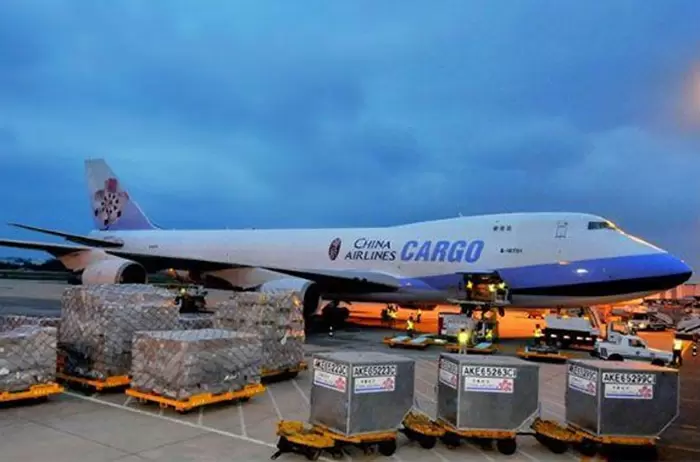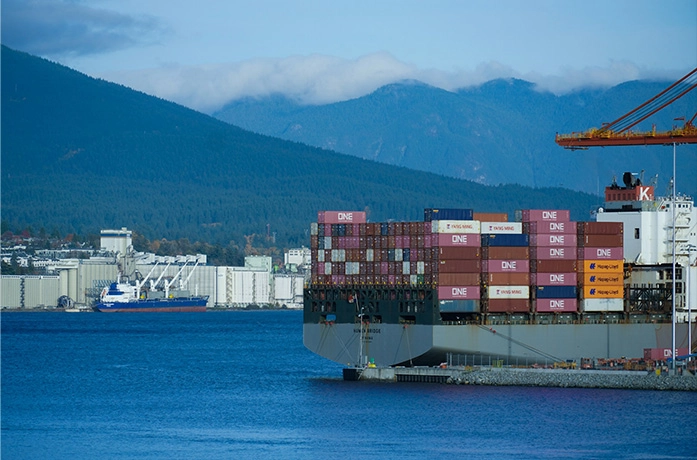Fast and Cost-Effective Global Shipping with Air and Ocean Freight
International shipping has become a cornerstone of global trade, facilitating the smooth movement of goods across continents. Businesses today rely heavily on air freight and ocean freight services to ensure their products reach global markets efficiently and reliably. Understanding the nuances of these transport modes is essential for optimizing logistics, reducing costs, and meeting delivery deadlines. In this blog post, Balance Logistics Inc., as high quality air and ocean logistics services provider, will share the benefits of international air freight and ocean freight services.
Understanding International Air Freight Services
International air freight services are designed for the rapid transportation of goods via airlines across the globe. Air freight is favored for its speed, reliability, and ability to reach destinations with limited transit infrastructure. It is particularly advantageous for high-value, perishable, or time-sensitive cargo such as electronics, pharmaceuticals, and fashion items.
Key aspects of international air freight include:
Transit Time Efficiency – Air freight significantly reduces delivery time, often completing shipments in a fraction of the duration required by sea transport.
Global Connectivity – Major airports are connected worldwide, allowing businesses to reach distant markets with minimal logistical complications.
Cargo Security – Air freight typically involves stringent security protocols, reducing the risk of loss, theft, or damage.
By leveraging air freight, businesses can maintain supply chain agility and respond swiftly to market demands.
Benefits of International Ocean Freight Services
While air freight is synonymous with speed, international ocean freight services provide a cost-effective solution for transporting large volumes of goods. Ocean freight is ideal for bulk shipments, heavy machinery, raw materials, and non-urgent deliveries.
Advantages of ocean freight include:
Economical Bulk Shipping – Shipping by sea allows for the transportation of large quantities at a fraction of the cost of air freight.
Versatility in Cargo Types – Ocean freight accommodates a wide range of cargo types, including containers, liquid bulk, and oversized goods.
Environmental Considerations – Compared to air freight, ocean transport has a lower carbon footprint per ton, contributing to more sustainable logistics practices.
Ocean freight remains the backbone of global trade, especially for industries that prioritize cost-efficiency over speed.

Comparing Air and Ocean Freight Services
Selecting between air freight and ocean freight services requires a careful analysis of business priorities, cargo type, and cost considerations.
| Feature | Air Freight | Ocean Freight |
|---|---|---|
| Transit Time | Fast (1–7 days) | Slower (20–45 days) |
| Cost | Higher | Lower |
| Cargo Volume | Limited | High |
| Environmental Impact | Higher | Lower |
| Ideal for | High-value, urgent goods | Bulk, heavy, non-urgent shipments |
A strategic logistics plan often involves combining both modes, depending on the urgency and scale of shipments.
Choosing the Right International Freight Forwarder
Partnering with a reliable international freight forwarder ensures seamless coordination of both air and ocean shipments. A competent forwarder provides services such as documentation management, customs clearance, cargo insurance, and multimodal transport integration.
Key criteria for selecting a freight forwarder include:
Experience and Expertise – Knowledge of global trade regulations and local customs processes.
Network Coverage – Access to extensive airline and shipping line networks for flexibility and reliability.
Technology Integration – Real-time tracking, shipment monitoring, and data analytics for supply chain transparency.
A forwarder that excels in both air and ocean freight enables businesses to optimize delivery schedules and reduce operational risks.
Integrating Air and Ocean Freight in Multimodal Solutions
Multimodal freight solutions combine air and ocean transport to balance speed, cost, and efficiency. This hybrid approach is increasingly popular among businesses with complex supply chains.
Benefits of multimodal integration include:
Optimized Delivery Time – Critical components can be shipped via air, while bulk items travel by sea.
Cost Control – Balancing expensive air freight with economical ocean freight reduces overall logistics expenditure.
Flexibility and Resilience – Diversifying transport modes mitigates risks of delays, strikes, or disruptions in a single mode.
Such solutions offer a holistic approach to global logistics management.
Key Considerations in International Freight Management
Efficient management of international freight services requires attention to several operational factors:
Customs Regulations and Compliance – Accurate documentation and adherence to import/export regulations prevent delays.
Packaging and Labeling – Proper packaging ensures cargo safety, particularly for sensitive or fragile goods.
Insurance Coverage – Comprehensive insurance protects against damage, loss, or theft during transit.
Seasonal and Geopolitical Factors – Understanding shipping trends, peak seasons, and potential geopolitical disruptions helps in planning reliable schedules.
Proactive management ensures smooth operations and enhances customer satisfaction.
Technological Advancements in International Freight
Modern logistics heavily relies on technology to streamline international air and ocean freight services. Innovations such as AI-based route optimization, blockchain for documentation transparency, and IoT-enabled cargo tracking enhance operational efficiency.
Digital Freight Platforms – Simplify booking, tracking, and reporting processes.
Automated Documentation – Reduces human errors and ensures compliance with global standards.
Data Analytics – Provides actionable insights for optimizing transport routes, inventory management, and cost control.
Adopting advanced technologies positions businesses to stay competitive in an increasingly complex global market.
Future Trends in Global Freight Transport
The logistics industry is evolving rapidly, with international air freight and ocean freight services adapting to changing market demands. Emerging trends include:
Sustainable Shipping Initiatives – Reduced emissions and green shipping practices are becoming industry standards.
Expanded Air Freight Capacity – Increasing cargo aircraft fleets to meet demand for faster delivery.
Digital Supply Chain Integration – End-to-end digital tracking and automated decision-making improve transparency.
Resilient Multimodal Networks – Strengthening networks to minimize disruptions from natural disasters or geopolitical challenges.
Understanding these trends allows businesses to plan strategically and maintain a competitive edge in global trade.
Conclusion
Choosing the appropriate international air freight and ocean freight service depends on balancing speed, cost, and cargo requirements. Air freight offers unparalleled speed and security for high-value or time-sensitive goods, while ocean freight excels in cost-effective bulk transportation. Multimodal solutions and advanced logistics management further enhance efficiency, reliability, and supply chain resilience. By integrating strategic planning, experienced freight partners, and technology, businesses can optimize their global shipping operations and thrive in an increasingly interconnected market.




